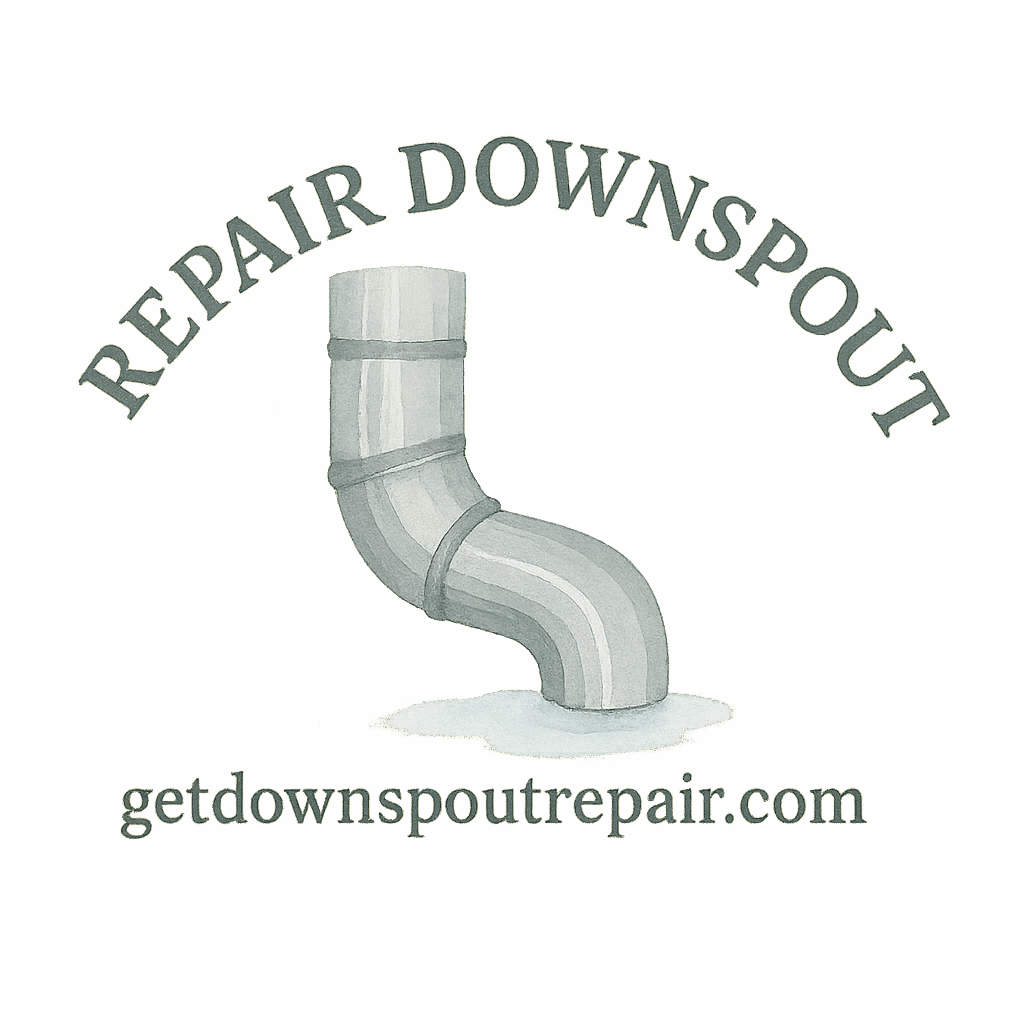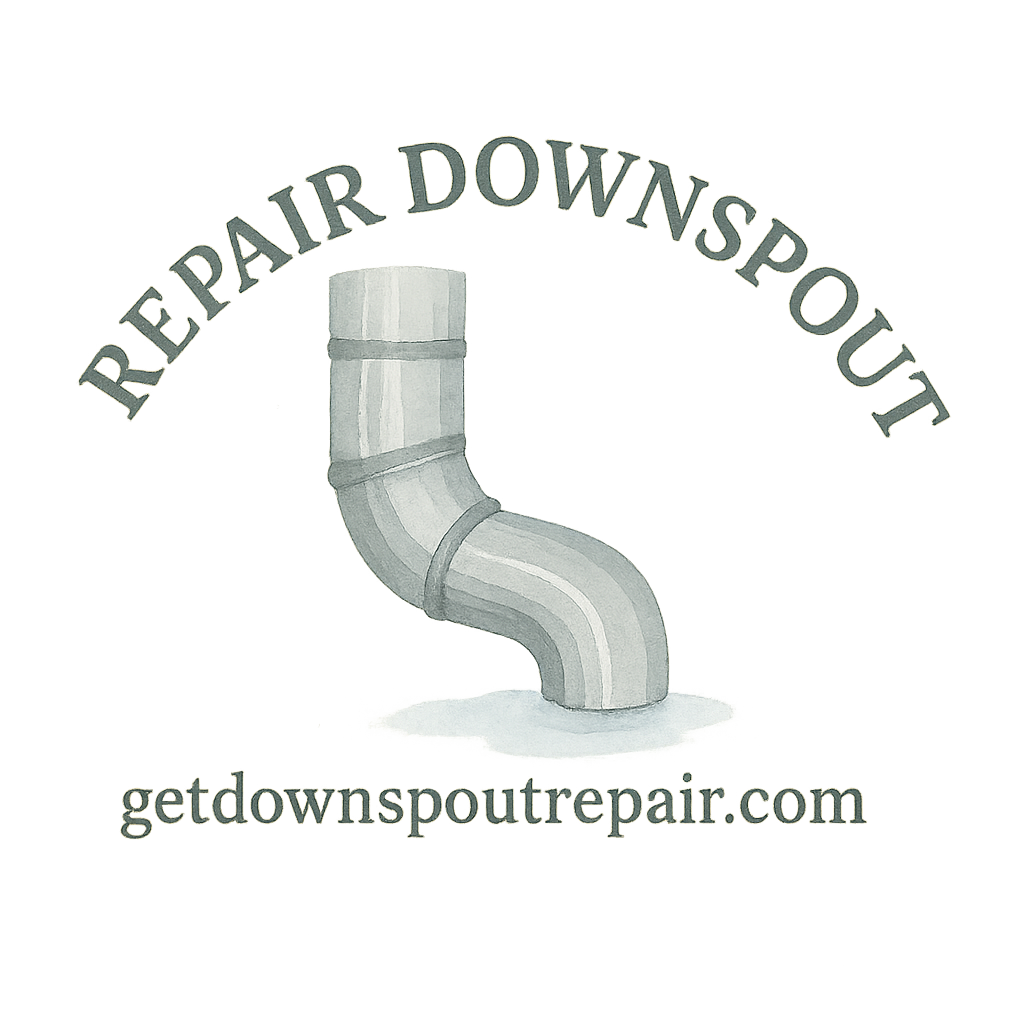Introduction: Why Downspout Repair Matters
Have you ever noticed rainwater pouring over the sides of your gutters instead of flowing neatly away from your house? Chances are, your downspouts are clogged or damaged. Ignoring this problem can lead to water damage, foundation cracks, and even mold growth. That’s why DIY downspout repair isn’t just about keeping things tidy—it’s about protecting your home from serious issues.
If you’ve been wondering how to fix clogged gutters without spending a fortune, you’re in the right place. In this guide, we’ll walk through 12 DIY hacks you can try right now to get your gutters flowing smoothly again.
Understanding DIY Downspout Repair Basics
How Downspouts Protect Your Home
Downspouts aren’t just decorative pipes; they’re your home’s drainage defense system. They carry rainwater from the gutters down to the ground, keeping your roof, siding, and foundation safe. Without working downspouts, water can pool around your home, causing erosion, basement leaks, or structural damage.
For a detailed breakdown of the fundamentals, check out this guide on repair basics.
Common Causes of Clogged Gutters
Clogs happen more often than you’d think. Leaves, twigs, dirt, and even bird nests can block your gutters. Over time, these blockages stop water from flowing, forcing it to overflow and seep into your walls or basement. Learning simple DIY fixes can save you from expensive water damage.
Essential Tools for DIY Downspout Repair
Budget-Friendly Tools Every Homeowner Needs
You don’t need a fancy toolkit to get started. A sturdy ladder, a garden hose, gloves, and a basic screwdriver can tackle most clogs. For more low-cost ideas, browse through these budget tips.
Premium Tools That Make Repairs Easier
If you’re willing to invest, tools like a plumber’s snake, wet/dry vacuum, or premium gutter cleaning attachments can make your job faster and safer. Explore some premium tools that experienced DIYers swear by.
12 DIY Downspout Repair Hacks for Clogged Gutters
1. Flush Out Clogs With a Garden Hose
The simplest method? Stick your garden hose into the downspout opening and turn the water on full blast. This pressure often clears out minor clogs without much effort.
2. Snake the Downspout Like a Pro
Just like unclogging a sink, use a plumber’s snake to break apart stubborn debris inside the downspout. It’s one of the most reliable DIY downspout repair tricks out there.
3. Use a Wet/Dry Vacuum for Stubborn Debris
Got a shop vac? Attach the hose and suck out the leaves and muck that water can’t push through. It’s messy but effective.

4. Create a Homemade Gutter Scoop
No scoop? No problem. Cut an empty plastic milk jug at an angle and use it to dig out wet leaves. A cheap and clever hack that works wonders.
5. Seal Leaks With Waterproof Tape
Small leaks around seams or joints? Wrap them up with heavy-duty waterproof tape. It’s not permanent, but it buys you time until you do a full repair.
6. Patch Holes With Epoxy Putty
Bigger holes require stronger fixes. Epoxy putty can be molded into cracks and hardens like metal—perfect for temporary patches.
7. Secure Loose Joints With Screws
If your downspout sections are wobbly, tighten them with sheet metal screws. A stable downspout ensures smooth water flow.
8. Redirect Water With Flexible Extensions
Sometimes the problem isn’t the clog—it’s where the water lands. Add a flexible downspout extension to keep water away from your foundation. Learn more about drainage protection here.
9. Install a Simple Gutter Strainer
Prevent future clogs by popping a strainer into the top of your downspout. It catches leaves before they enter the pipe.
10. Use a Leaf Blower for Quick Clearing
Attach a gutter cleaning kit to your leaf blower and blast away debris. It’s fast, fun, and surprisingly effective.
11. Add Splash Blocks to Protect Foundations
Place a splash block at the bottom of your downspout to spread water out evenly and avoid soil erosion.
12. Prevent Future Clogs With Regular Cleaning
The best hack of all? Stay consistent. Schedule seasonal cleanings and avoid neglect. Browse tips on prevent clogging for long-term results.
Safety Tips for DIY Downspout Repair
Ladder Safety Basics
Always set your ladder on stable ground and never overreach. A fall from even a short height can be serious.
Protective Gear to Wear
Gloves, goggles, and a dust mask can protect you from sharp debris, mold, and pests hiding in your gutters.
When to Call a Downspout Repair Expert
Signs Your DIY Fix Isn’t Enough
If you notice recurring clogs, rust damage, or water pooling near your foundation, DIY might not cut it.
Benefits of Hiring a Licensed Contractor
Professionals bring experience, specialized downspout gear, and can spot hidden issues. Learn when it’s best to get pro help.
Cost of DIY vs. Professional Downspout Repair
Material Costs to Expect
DIY repairs often only require $20–$100 in supplies, depending on the issue. For a full breakdown, see this guide on costs & materials.
Long-Term Savings of DIY
Sure, pros save time, but DIY means you’ll avoid labor costs and gain valuable skills for future repairs.
Pro Tips to Prevent Future Downspout Problems
Seasonal Maintenance Habits
Clean your gutters in spring and fall, especially after heavy storms.
Smart Investments in Quality Products
Upgrading to seamless gutters, installing strainers, and choosing quality products helps you avoid repeat repairs.
Conclusion
Clogged gutters might seem like a small headache, but left unchecked, they can snowball into costly home repairs. By trying these 12 DIY downspout repair hacks, you’ll not only keep your gutters flowing but also protect your home from water damage.
Whether you’re patching leaks, flushing out debris, or adding extensions, a little effort goes a long way. And remember, if things get too complicated, there’s no shame in calling a downspout expert.
FAQs
1. How often should I clean my gutters and downspouts?
At least twice a year—spring and fall are ideal times.
2. Can I use household items for DIY downspout repair?
Yes! Things like milk jugs, duct tape, and garden hoses work surprisingly well.
3. What’s the fastest way to unclog a downspout?
Flushing with a garden hose or using a plumber’s snake are usually the quickest fixes.
4. Are gutter strainers worth it?
Absolutely—they stop debris from entering your downspouts and reduce the need for frequent cleaning.
5. When should I replace instead of repair?
If your downspouts are rusted, cracked, or sagging beyond repair, replacement is smarter.
6. Do flexible extensions really help with drainage?
Yes—they redirect water away from your foundation, preventing erosion and basement leaks.
7. Is DIY downspout repair safe for beginners?
Yes, as long as you follow ladder safety and wear protective gear. Start with small fixes before tackling bigger jobs.


